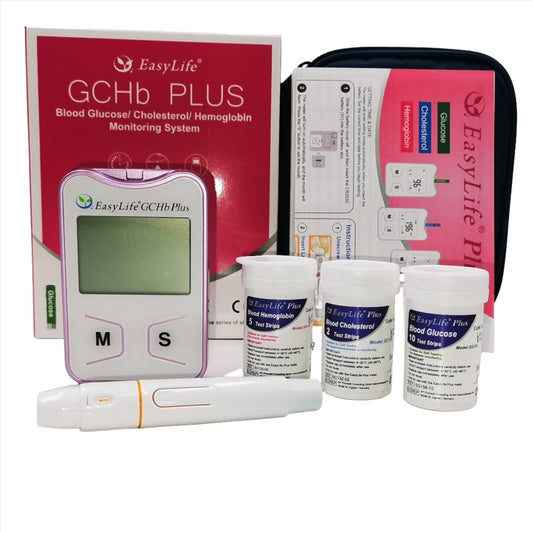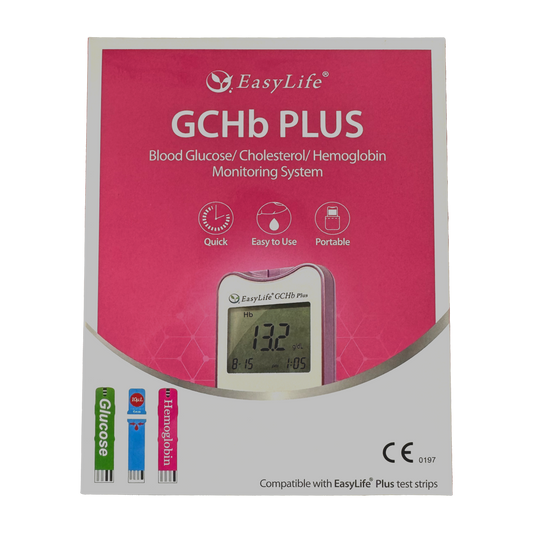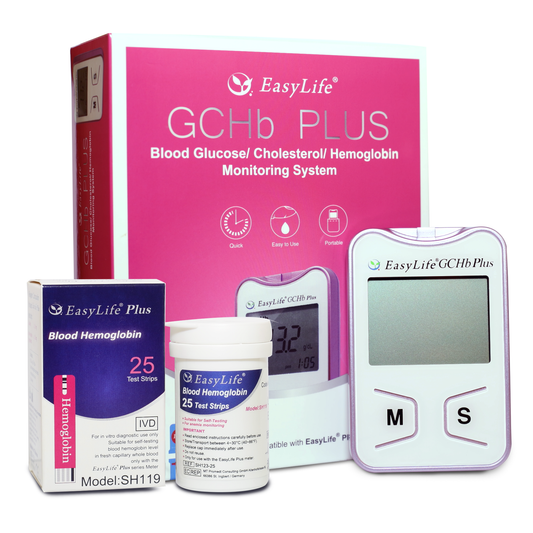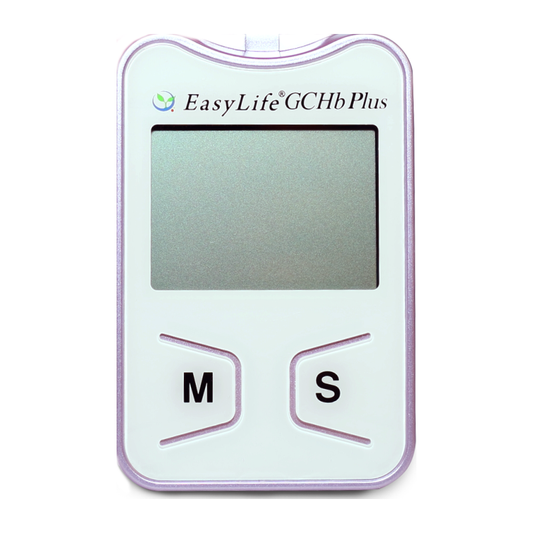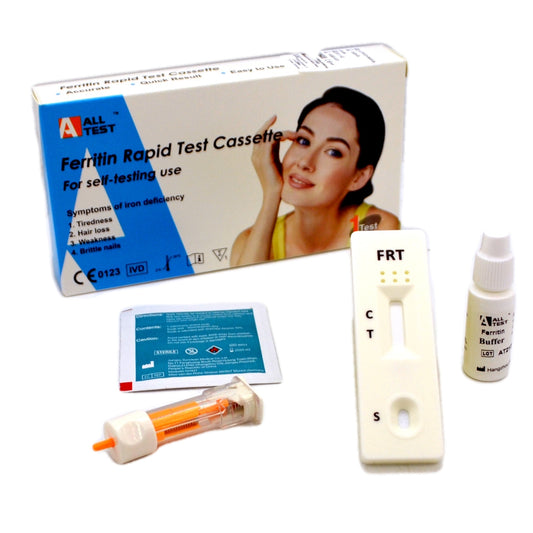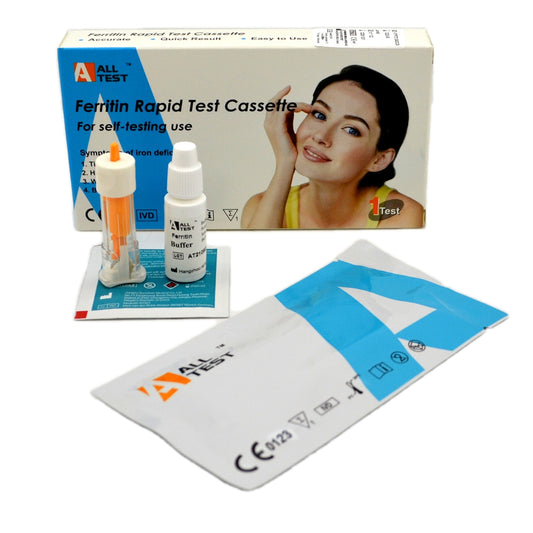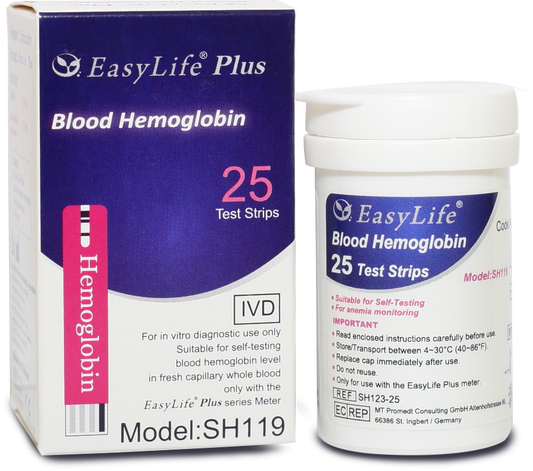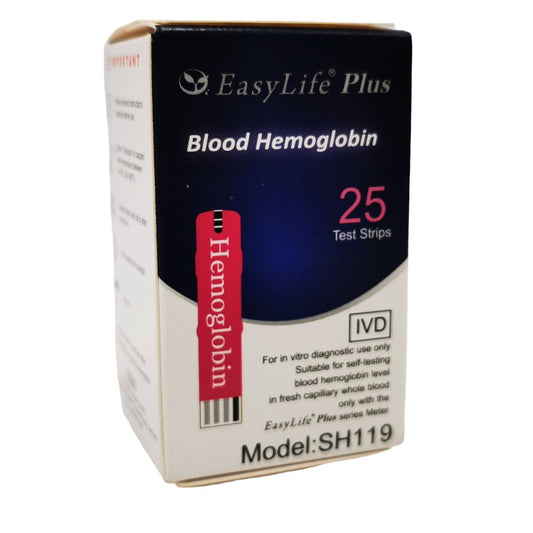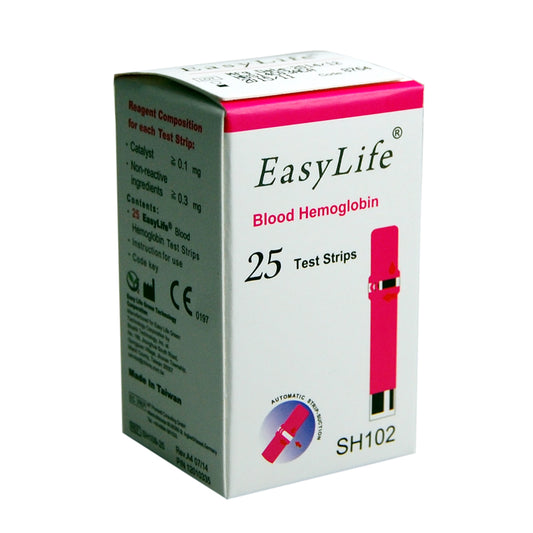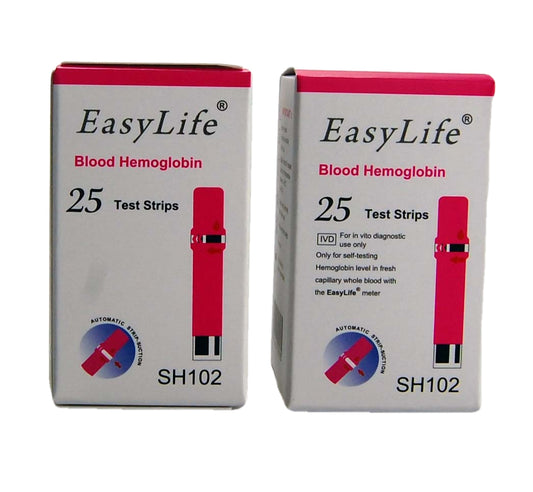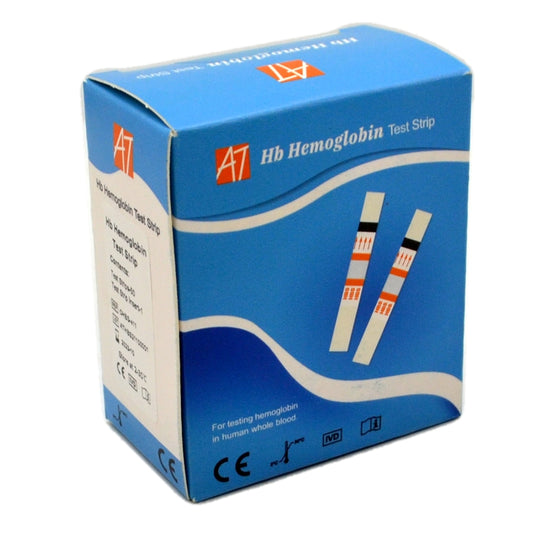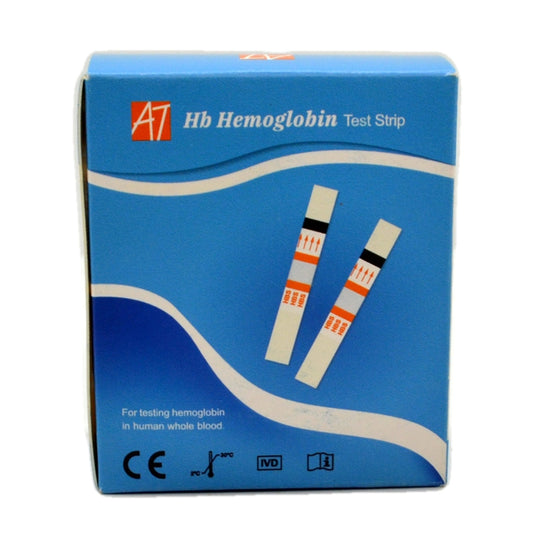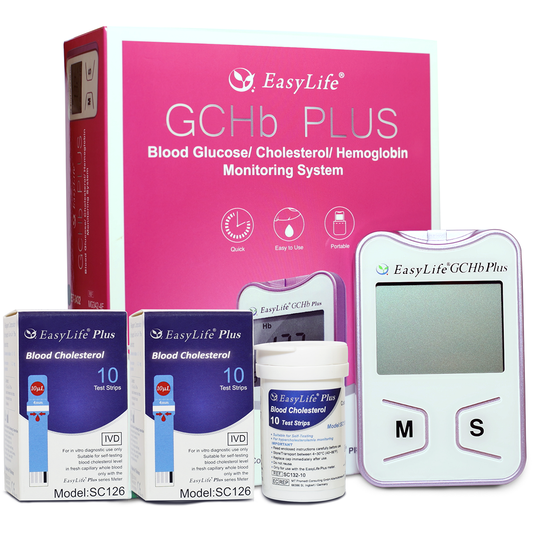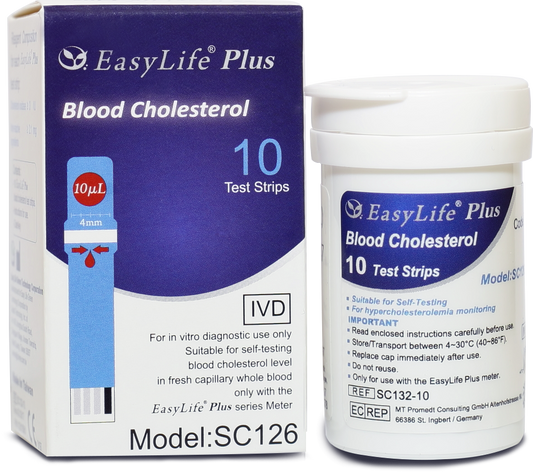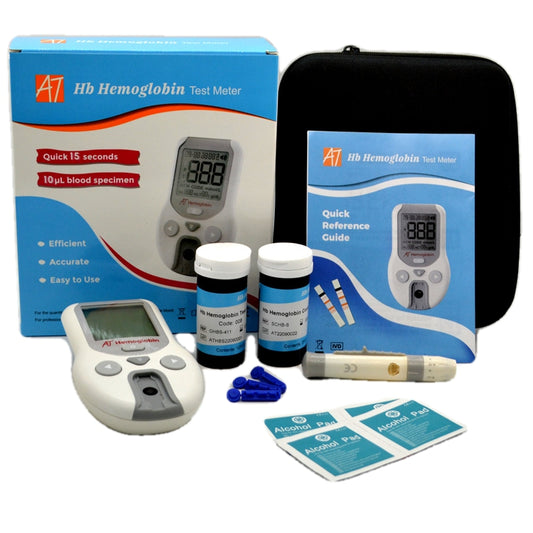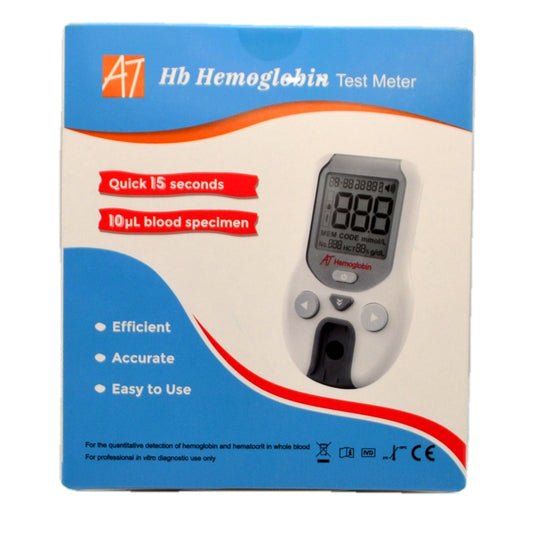Collection: Anaemia Tests
-
EASYLIFE GCHb PLUS Blood Glucose / Cholesterol / Haemoglobin Meter
5 reviewsRegular price From £49.99 GBPRegular priceUnit price / per -
EASYLIFE Plus Blood Haemoglobin Anaemia Meter + 25 Easylife Plus Haemoglobin Test Strips + 25 Safety Lancets
4 reviewsRegular price £68.58 GBPRegular priceUnit price / per -
ALLTEST Home Ferritin Test Kit for Iron Deficiency
1 reviewRegular price £4.49 GBPRegular priceUnit price / per -
EASYLIFE PLUS Blood Haemoglobin Test Strips
No reviewsRegular price From £18.59 GBPRegular priceUnit price / per£0.00 GBPSale price From £18.59 GBP -
EASYLIFE Legacy Blood Haemoglobin Strips
13 reviewsRegular price From £18.59 GBPRegular priceUnit price / per£0.00 GBPSale price From £18.59 GBP -
50 ALLTEST Blood Haemoglobin Strips + Pipettes
3 reviewsRegular price From £27.99 GBPRegular priceUnit price / per£0.00 GBPSale price From £27.99 GBP -
EASYLIFE Plus Total Home Cholesterol Testing Kit + 20 Cholesterol Tests
No reviewsRegular price £68.58 GBPRegular priceUnit price / per -
Professional Hemoglobin & Haematocrit Blood Testing Meter AT
1 reviewRegular price £81.99 GBPRegular priceUnit price / per
Tests for anaemia
You can test blood ferritin (iron levels) or haemoglobin with these simple-to-use home blood test kits and haemoglobin meters. Also suitable for professional clinic use.
What is a Haemoglobin meter?
Haemoglobin meters, also known as haemoglobinometers or Hb meters, are medical devices that are used to measure the amount of haemoglobin in a person's blood. These meters are commonly used to diagnose and monitor anaemia, a condition that occurs when the body doesn't have enough red blood cells or haemoglobin.
Haemoglobin meters work by using a small blood sample, usually obtained through a finger prick, to measure the amount of haemoglobin present in the blood. The device uses a light source, such as an LED, to pass light through the blood sample, which is then measured by a photodetector. The meter then calculates the haemoglobin level based on the amount of light that is absorbed by the blood sample.
There are many different types of haemoglobin meters available on the market, ranging from simple, handheld devices that are suitable for home use, to more sophisticated meters that are used in clinical settings. Some haemoglobin meters are also designed to measure other parameters, such as blood glucose or cholesterol levels.
Haemoglobin meters are an important tool for diagnosing and monitoring anaemia, particularly in resource-limited settings where access to laboratory testing may be limited. They are also used to monitor haemoglobin levels in people who are undergoing treatments for anaemia, such as iron supplements or blood transfusions.
While haemoglobin meters are generally considered safe and reliable, it's important to use them correctly and to follow the manufacturer's instructions. Improper use or calibration of the device can lead to inaccurate readings, which may affect diagnosis and treatment decisions.
Overall, haemoglobin meters are an important tool in the diagnosis and management of anaemia, providing a quick and convenient way to measure haemoglobin levels and monitor treatment outcomes. If you have concerns about your haemoglobin levels or are experiencing symptoms of anaemia, it's important to talk to your healthcare provider, who can perform the appropriate tests and help you develop a treatment plan.
What is Anaemia?
Anaemia is a medical condition that occurs when the body doesn't have enough red blood cells or haemoglobin, the protein in red blood cells that carries oxygen to the body's tissues. As a result, the body's tissues and organs don't receive enough oxygen, leading to fatigue, weakness, and other symptoms.
There are many different types of anaemia, each with its own causes and symptoms. The most common type is iron-deficiency anaemia, which occurs when the body doesn't have enough iron to produce haemoglobin. This can happen due to poor dietary intake of iron, chronic bleeding from the gastrointestinal tract or menstruation, or other underlying medical conditions.
Other types of anaemia include vitamin-deficiency anaemia, which occurs when the body doesn't have enough vitamin B12 or folate to produce red blood cells, and haemolytic anaemia, which occurs when red blood cells are destroyed too quickly. There are also inherited forms of anaemia, such as sickle cell anaemia and thalassemia, which are caused by genetic mutations that affect the production or structure of red blood cells.
What are the symptoms of Anaemia?
Symptoms of anaemia can vary depending on the underlying cause and severity of the condition, but common symptoms include fatigue, weakness, pale skin, shortness of breath, dizziness, and headaches. Severe or chronic anaemia can lead to complications such as heart problems, cognitive impairment, and an increased risk of infections.
Treatment for anaemia depends on the underlying cause but may include iron or vitamin supplements, blood transfusions, or medication to control symptoms or underlying conditions. In some cases, lifestyle changes such as changes in diet or exercise may also be recommended.
If you think you may be experiencing symptoms of anaemia, it's important to talk to your healthcare provider. They can perform tests to determine if you have anaemia and help you develop a treatment plan to manage your symptoms and improve your overall health.

